 It’s difficult to question things we don’t realize we assume. For example, few of us ponder why we easily trust our family doctor to diagnose pretty much ANY part of our body, internal or external, except our mouth. Our mouth, it seems, is so darned complicated and unique compared to, say, our aortic valve or epidermal sheath, that only SPECIAL DIFFERENT OTHER TYPES OF DOCTORS can even LOOK at this oral outlier.
It’s difficult to question things we don’t realize we assume. For example, few of us ponder why we easily trust our family doctor to diagnose pretty much ANY part of our body, internal or external, except our mouth. Our mouth, it seems, is so darned complicated and unique compared to, say, our aortic valve or epidermal sheath, that only SPECIAL DIFFERENT OTHER TYPES OF DOCTORS can even LOOK at this oral outlier.
The sole exception involves gagging you with a stick while you say ‘aaahhhh’ – a breach of etiquette required to view your throat (which doesn’t even count).
We don’t really think to question it. That’s just how it is, was, and always shall be. Except it’s not. It hasn’t been THAT long since your local barber would be as likely to pull your troublesome tooth as trim your sideburns. It was all above-the-shoulders care – why limit yourself?
 School is rife with these sorts of assumptions. We simply MUST shuffle students from boxed area to boxed area in slightly-under-an-hour increments. We have roughly the same number of kids in each class, one subject per teacher, and at some point papers of various kinds must be placed in baskets to “grade.” Eventually, all experiences must reduce to a number between 1 – 100 and one of five letters, none of which can be ‘E’ because that’s stupid and wouldn’t tell us anything – unlike, say, ‘C’.
School is rife with these sorts of assumptions. We simply MUST shuffle students from boxed area to boxed area in slightly-under-an-hour increments. We have roughly the same number of kids in each class, one subject per teacher, and at some point papers of various kinds must be placed in baskets to “grade.” Eventually, all experiences must reduce to a number between 1 – 100 and one of five letters, none of which can be ‘E’ because that’s stupid and wouldn’t tell us anything – unlike, say, ‘C’.
It’s really rather bizarre.
But these things are at least being discussed, and challenged. The sense that we’re missing something isn’t new, but the subject does seem to be heating up lately, thanks to a variety of issues – Common Core, Race to the Top, No Child Left Behind, anything involving Bill Gates, Jeb Bush, Arne Duncan, or Michelle Rhee. If those don’t get your panties in a wad, I could add TFA, charters, vouchers, or Virtual Embezzlement… those oughta do it.
The ease of utilizing blogs and social media probably hasn’t hurt. Teachers can rant and share and question with a comfortable combination of anonymity and familiarity – and with peeps from around the edu-niverse. I myself have a lil’ blog which is more or less education-focused. You should check it out sometime.
Something I don’t hear questioned much, though, is the nature of our ‘core curriculum’. Sure, the specifics vary from district to district, and grade to grade, but it’s generally assumed that all students need Math, English, Science, and – time permitting – some kind of History or Social Studies. Ideally they’ll get a little Art, something Computer-ish, maybe even whatever it is we call “Home Ec” these days. But the Big Three-and-a-Half remain constant across an otherwise fractured edu-nation.
 And if students behave, and keep the right letters on their weekly personal-reduction-to-a-point-value report, they may be allowed to play sports, or participate in drama, or band, or debate, or cheer, or dance, or some other ‘extra-curricular’.
And if students behave, and keep the right letters on their weekly personal-reduction-to-a-point-value report, they may be allowed to play sports, or participate in drama, or band, or debate, or cheer, or dance, or some other ‘extra-curricular’.
We call them that because they’re things going on OUTSIDE the curriculum – outside of the presumably important, useful, REAL purpose of school stuff.
That’s the thing I’m surprised we don’t question more often. What makes these things ‘outside’, compared to, say… Physics? Algebra? State History? What makes some classes ‘curricular’ and others, well… ‘extra’?
If you’re failing Algebra, you can’t play Basketball. But if you’re failing Basketball, they don’t stop you from going to Algebra until you get your game back on track. This little motivational system only works one way.
Why?
Algebra is important, but so are athletics. If our goal is “college, career, and citizenship ready,” Basketball is far more likely to help you with the latter two. Algebra wins for the first, but mostly that just means that doing math qualifies you to do harder math.
 Most of these kids are never going to be professional athletes. But neither are they likely to become professional mathematicians, or chemists, or historians, or novelists. The skills and knowledge gained in each of those realms nevertheless serve a larger good. They help to form a fuller, better, hopefully somewhat happier person.
Most of these kids are never going to be professional athletes. But neither are they likely to become professional mathematicians, or chemists, or historians, or novelists. The skills and knowledge gained in each of those realms nevertheless serve a larger good. They help to form a fuller, better, hopefully somewhat happier person.
The sorts of life skills learned and practiced in a strong band, drill team, or competitive speech program are just as applicable to career and personal success as anything covered in English class. If we’re hoping to produce team players not afraid to take risks, our girls’ volleyball team is way ahead of, say, AP Physics.
The value of individual effort and responsibility combined with teamwork and group accountability – the drive to be the best one can be while maintaining appropriate sportsmanship – overcoming adversity – recognizing that struggle produces progress – the power of setting both short-term and long-term goals – adapting quickly and capably when things don’t go according to plan…
Are these things really so much less important than learning to factor binomials or identify regions in which the Afton point seems to have replaced the Clovis?
I’m not dismissing the importance of content knowledge in a variety of areas – I love my subject and if granted my boon would elevate it to the number one priority for all school children everywhere in the world. Heck, I even value learning for learning’s sake – it’s fun, and fulfilling, and just plain good for us. It also makes us less useless, and hopefully a tad less odious.
But I’m just not convinced our current caste system of subjects is nearly as obvious or necessary as we think.
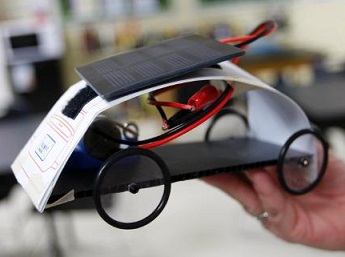 I sat in yet another #STEM breakfast recently and heard extolled the glories of project-based learning with clear assessments whose rubrics were known in advance and a process built on collaboration – what the rest of us might call ‘band rehearsal’, ‘theater’, ‘competitive debate’, or ‘football practice’.
I sat in yet another #STEM breakfast recently and heard extolled the glories of project-based learning with clear assessments whose rubrics were known in advance and a process built on collaboration – what the rest of us might call ‘band rehearsal’, ‘theater’, ‘competitive debate’, or ‘football practice’.
In this case they meant mostly science-y stuff, which is all wonderful and good. But we already have classes where students do those things. They’re just not allowed to keep doing them unless they pass Science.
Are we currently turning out a generation so fluent in algebra, world history, chemistry, and grammar that it would be tragic to risk any of it in exchange for a few life skills? Are we so certain that kid who finds his calling in Theater Production would have totally aced that Old Man and the Sea quiz if he hadn’t been wasting his time doing something that might lead to employment in a field he loves?
I’m not suggesting we do away with the cores. I AM suggesting we expand our idea of what constitutes a ‘core subject’ and do a better job exploring to what extent stuff kids actually want to know and be able to do can be utilized as more than a carrot or a stick to navigate them through the things we think they simply have to know whether they want to or not.
I am suggesting we’re vain to think we know exactly what will or will not be ‘good for them’ long term, especially when their gifts and inclinations suggest otherwise. I am suggesting that we cannot equip a generation to be flexible and adaptable and useful by cramming them all into the same Enlightenment-era curricular mold, enforced through a factory-model school system.
I’m suggesting we question our assumptions.
Related Post: First Class, or Coach?
Related Post (From “The Disappointed Idealist” Blog): Academic vs. Vocational – Why Does It Need To Be A Choice?



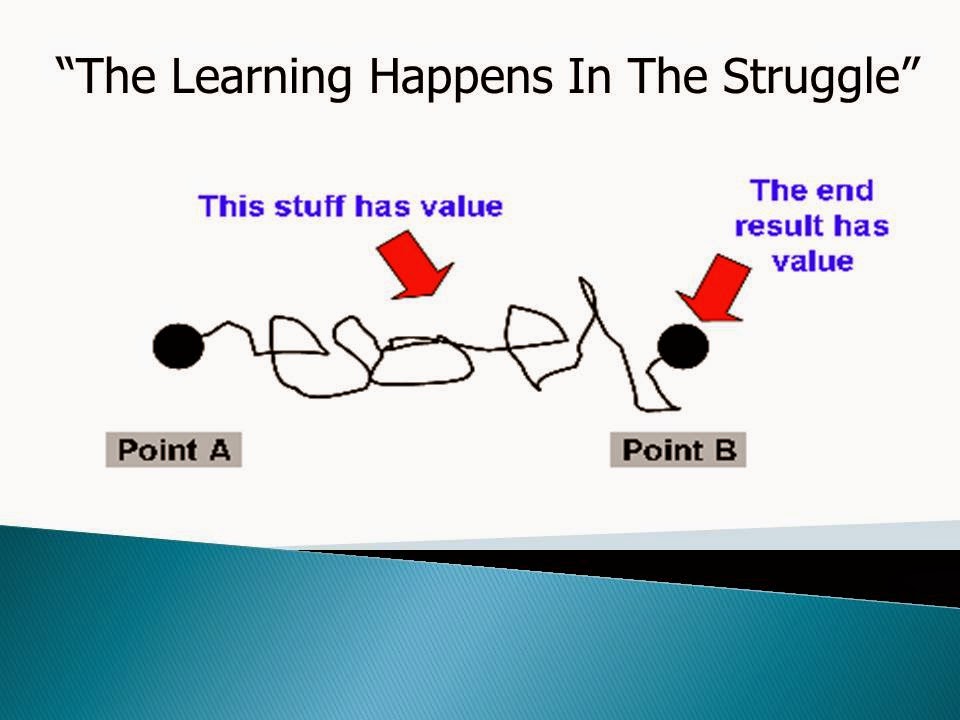

 We’ve taught them to be completely helpless. We’ve trained them not to move until we tell them exactly what to do, and how, and then do it for them. The learning does indeed happen in the struggle, but how do they learn to struggle without, well… struggling?
We’ve taught them to be completely helpless. We’ve trained them not to move until we tell them exactly what to do, and how, and then do it for them. The learning does indeed happen in the struggle, but how do they learn to struggle without, well… struggling? 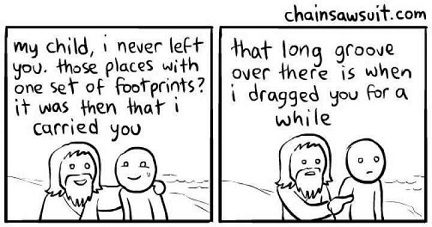
 I feel myself giving in… letting go of the idealistic ‘oughta work’ and looking longingly towards the ‘would actually result in learning.’ I feel myself slipping off-program, avoiding my admins, and lying to my PLC about what I’m really doing in class that day.
I feel myself giving in… letting go of the idealistic ‘oughta work’ and looking longingly towards the ‘would actually result in learning.’ I feel myself slipping off-program, avoiding my admins, and lying to my PLC about what I’m really doing in class that day.  I’m a bad person.
I’m a bad person. Don’t get me wrong – it’s just peachy keen swell that throwing a few computers in the middle of an impoverished village and making sure no teachers interfere practically guarantees a bunch of eight-year olds will master calculus, cure cancer, and reverse climate change. Here’s to the success of every one of those dusty darlings and even newer, bigger opportunities for them to challenge themselves AND the dominant paradigm. Seriously.
Don’t get me wrong – it’s just peachy keen swell that throwing a few computers in the middle of an impoverished village and making sure no teachers interfere practically guarantees a bunch of eight-year olds will master calculus, cure cancer, and reverse climate change. Here’s to the success of every one of those dusty darlings and even newer, bigger opportunities for them to challenge themselves AND the dominant paradigm. Seriously. Maybe it would be better to do the entire building… eleven hundred freshmen set free to learn with a bank of Dells and no silly adults with their stifling expectations. Imagine the money saved on staff – and computers never take personal days or violate professional dress code!
Maybe it would be better to do the entire building… eleven hundred freshmen set free to learn with a bank of Dells and no silly adults with their stifling expectations. Imagine the money saved on staff – and computers never take personal days or violate professional dress code! I’m not unsympathetic. I get what these writers and speakers are going for. Most are trying to make the very valid point that when we try to cram kids’ heads full of 87-pages of curriculum standards compiled by committees and approved by states to be tested by bubbles, we are unlikely to either fill their buckets OR light their fires.
I’m not unsympathetic. I get what these writers and speakers are going for. Most are trying to make the very valid point that when we try to cram kids’ heads full of 87-pages of curriculum standards compiled by committees and approved by states to be tested by bubbles, we are unlikely to either fill their buckets OR light their fires. It’s not. Remember that Oregon Trail game we were all so excited about a few decades ago? That’s still about as cutting edge as educational games have managed, and that’s not even what most virtual learning is attempting.
It’s not. Remember that Oregon Trail game we were all so excited about a few decades ago? That’s still about as cutting edge as educational games have managed, and that’s not even what most virtual learning is attempting. There are glaring problems with this system, some within the school’s control and many more without. The biggest problem with the current model is also the most substantial barrier to all this self-directed learning we keep hearing will save us all – state legislatures dictate most of what’s supposed to be “important” and decide how these things will be assessed.
There are glaring problems with this system, some within the school’s control and many more without. The biggest problem with the current model is also the most substantial barrier to all this self-directed learning we keep hearing will save us all – state legislatures dictate most of what’s supposed to be “important” and decide how these things will be assessed. One of my personal goals for this blog and this website
One of my personal goals for this blog and this website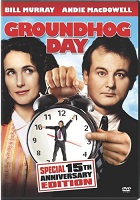 Most of you remember Groundhog Day, a movie I felt like I’d seen a dozen times before I was even through my first box of Milk Duds. The basic premise – that something is causing a person, group, or starship, to repeatedly jump back in time to relive a set of experiences with only minor variations – was sci-fi trope long before Bill Murray had those extra pancakes.
Most of you remember Groundhog Day, a movie I felt like I’d seen a dozen times before I was even through my first box of Milk Duds. The basic premise – that something is causing a person, group, or starship, to repeatedly jump back in time to relive a set of experiences with only minor variations – was sci-fi trope long before Bill Murray had those extra pancakes.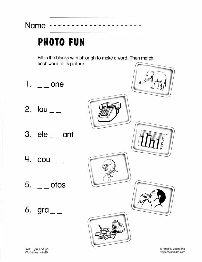 Workshop leaders or edu-bloggers rarely “open” with this grand bit of modern wisdom – it’s saved for the ‘impact’ moment of the autobiographical anecdote demonstrating both connection with the audience and touching vulnerability – the kind that makes you trust someone enough to buy their book.
Workshop leaders or edu-bloggers rarely “open” with this grand bit of modern wisdom – it’s saved for the ‘impact’ moment of the autobiographical anecdote demonstrating both connection with the audience and touching vulnerability – the kind that makes you trust someone enough to buy their book.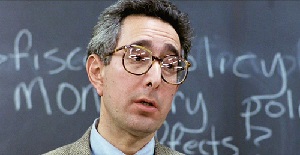 I’m sorry you had that one boring teacher in high school all those years ago, I really am. I got sick on chocolate chip pancakes when I was 17 and projectile-vomited all over the hall bathroom, but I’m 47 now and don’t carefully construct each week’s menu around the dangers of Bisquick. Get over it.
I’m sorry you had that one boring teacher in high school all those years ago, I really am. I got sick on chocolate chip pancakes when I was 17 and projectile-vomited all over the hall bathroom, but I’m 47 now and don’t carefully construct each week’s menu around the dangers of Bisquick. Get over it. The funny thing about history is that most of it cannot, in fact, be effectively understood without some knowledge of specifics. Yeah, it’s the big picture stuff that often matters most, and connects us to the past, and teaches us those grand lessons and such, but it’s all built out of particulars. History generally happens to people in places at certain times.
The funny thing about history is that most of it cannot, in fact, be effectively understood without some knowledge of specifics. Yeah, it’s the big picture stuff that often matters most, and connects us to the past, and teaches us those grand lessons and such, but it’s all built out of particulars. History generally happens to people in places at certain times.